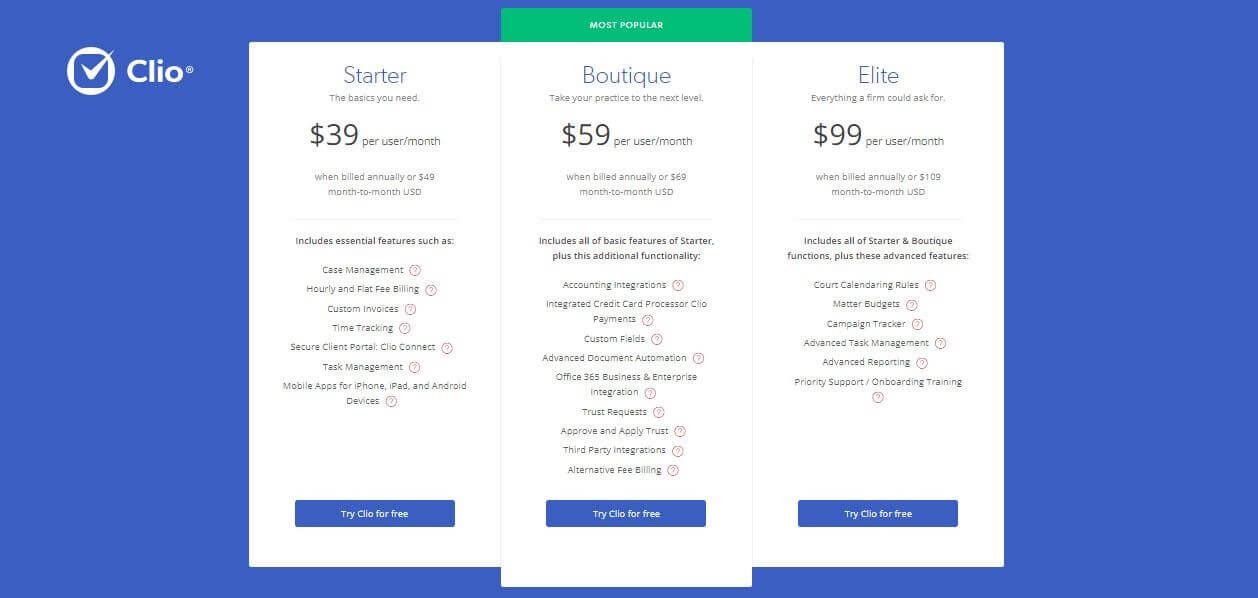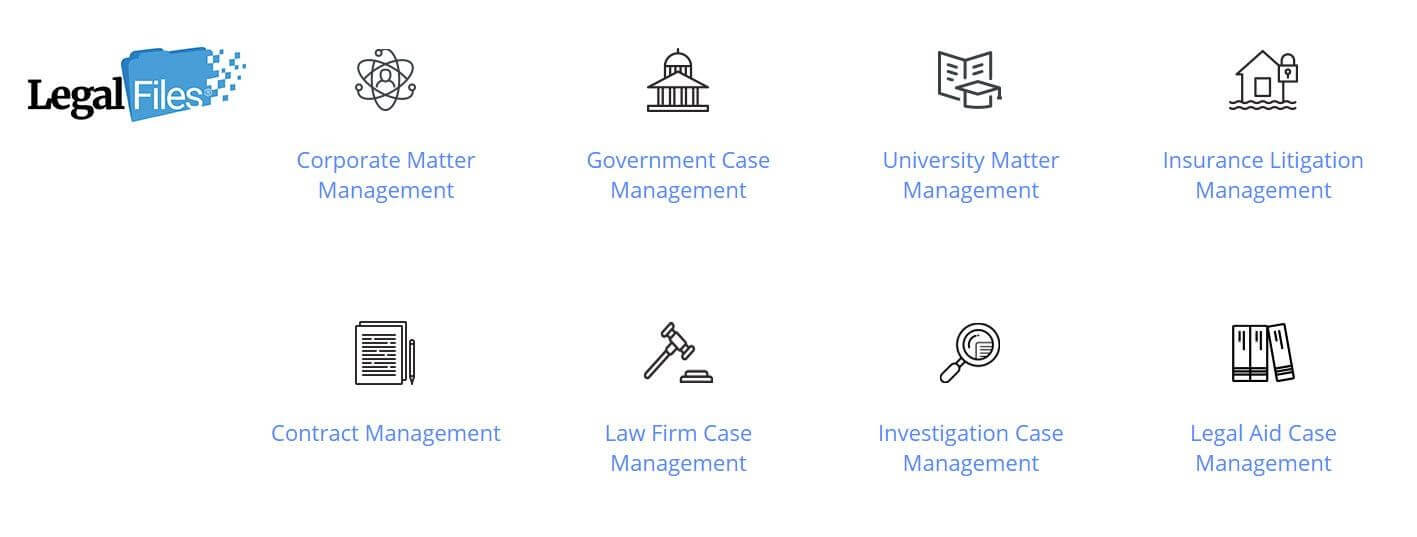When you think of high-paying professions, lawyers often top the list. But what does it really mean to be a lawyer in Bulgaria, and how do their salaries compare to other professions? In this exploration, we’ll dive into the world of legal professionals in Bulgaria, uncovering the factors that contribute to their earnings and what it takes to reach the top of the salary scale.
Lawyer Salary in Bulgaria

Understanding the salary landscape for lawyers in Bulgaria can be quite enlightening. The average salary for a lawyer in Bulgaria varies significantly based on experience, specialization, and the type of law practiced. According to recent data, the average annual salary for a lawyer in Bulgaria is around BGN 86,440. But what does this figure really represent?
BGN 86,440
To put BGN 86,440 into perspective, let’s break it down. This salary is approximately equivalent to about €44,000 or $48,000 annually. While this may seem modest compared to salaries in Western Europe or the United States, it’s essential to consider the cost of living in Bulgaria, which is significantly lower. For many, this salary allows for a comfortable lifestyle.
However, not all lawyers earn this amount. Factors such as the type of law practiced can lead to substantial differences in earnings. For instance, corporate lawyers or those specializing in mergers and acquisitions often command higher salaries, sometimes exceeding BGN 150,000 annually. In contrast, public defenders or those working in non-profit sectors may earn considerably less.
Moreover, the prestige of the law firm also plays a crucial role. Top-tier law firms in Sofia, the capital, are known to offer lucrative compensation packages, including bonuses and benefits that can significantly boost a lawyer’s overall earnings. For example, a partner in a leading law firm might earn several times the average salary, reflecting their experience and the firm’s success.
It’s also worth noting that the legal profession in Bulgaria is evolving. With the rise of technology and online legal services, new opportunities are emerging, potentially reshaping the salary landscape. As more lawyers adapt to these changes, we may see shifts in how legal services are valued and compensated.
In conclusion, while the average salary of BGN 86,440 provides a snapshot of what lawyers can expect in Bulgaria, the reality is much more nuanced. Factors such as specialization, experience, and the type of law practiced can lead to significant variations in earnings. As we continue to explore the legal profession in Bulgaria, it’s clear that the journey to becoming a high-paid lawyer is as complex as the law itself.
BGN 42/hr
Have you ever wondered what it takes to earn a substantial hourly wage as a lawyer in Bulgaria? The figure of BGN 42 per hour might seem modest at first glance, but it represents a significant milestone for many legal professionals in the country. This rate is often associated with entry-level positions or those working in smaller firms, where the experience is just beginning to blossom.
Imagine a young lawyer, fresh out of law school, stepping into a bustling law office in Sofia. They are eager to make their mark, navigating the complexities of the legal system while building their client base. At BGN 42 per hour, they are not just earning a paycheck; they are investing in their future. This rate allows them to gain invaluable experience, hone their skills, and establish a reputation in a competitive field.
According to a study by the Bulgarian Bar Association, many new lawyers find that their initial earnings can be supplemented by taking on pro bono cases or internships, which, while unpaid, provide essential networking opportunities and practical experience. As they grow in their careers, the potential for higher earnings becomes more tangible.
BGN 5,852
Now, let’s shift our focus to a more impressive figure: BGN 5,852 per month. This salary is often associated with seasoned lawyers who have carved out a niche in specialized fields such as corporate law, intellectual property, or international arbitration. Picture a lawyer who has spent years building relationships with clients and mastering the intricacies of their chosen field. This level of expertise not only commands respect but also translates into a lucrative salary.
For instance, a corporate lawyer working with multinational companies may find themselves negotiating complex contracts and navigating regulatory frameworks. Their ability to provide strategic legal advice can significantly impact a company’s bottom line, making their services highly sought after. As a result, they can command salaries that reflect their expertise and the value they bring to their clients.
Moreover, a report from the Bulgarian National Statistical Institute highlights that lawyers in larger cities, particularly Sofia and Plovdiv, tend to earn higher salaries due to the concentration of businesses and legal firms. This urban advantage creates a dynamic environment where legal professionals can thrive and achieve financial success.
Explore Our Salary Database
If you’re curious about how these figures stack up against other professions or want to explore the salary landscape further, consider diving into our comprehensive salary database. It’s a treasure trove of information that can help you understand not just the average earnings of lawyers in Bulgaria, but also the factors that influence these numbers.
In this database, you’ll find:
- Comparative Salaries: See how lawyers’ earnings compare to other professions in Bulgaria.
- Regional Variations: Discover how location impacts salary, with insights into urban versus rural earnings.
- Specialization Insights: Learn which legal specialties are the most lucrative and why.
- Career Progression: Understand how experience and continued education can lead to higher salaries over time.
By exploring this data, you can gain a clearer picture of the legal profession in Bulgaria and what it takes to reach the upper echelons of earnings. Whether you’re a budding lawyer or simply curious about the field, this information can empower you to make informed decisions about your career path.
Average Salary Chart
When we think about the legal profession, images of high-stakes negotiations and courtroom dramas often come to mind. But what about the financial rewards that come with such a demanding career? In Bulgaria, the landscape of legal salaries can be quite revealing, showcasing the disparity between different specializations and levels of experience. Understanding these figures can help you appreciate the value of legal expertise in our society.
According to recent data, the average salary for a lawyer in Bulgaria hovers around €1,200 to €1,500 per month. However, this figure can vary significantly based on various factors such as experience, specialization, and the type of law practiced. For instance, corporate lawyers, who often deal with mergers, acquisitions, and complex business transactions, can command much higher salaries.
To give you a clearer picture, let’s break down the average salaries by specialization:
- Corporate Lawyers: €2,500 – €4,000 per month
- Criminal Defense Attorneys: €1,500 – €2,500 per month
- Family Lawyers: €1,200 – €2,000 per month
- Intellectual Property Lawyers: €2,000 – €3,500 per month
- Tax Lawyers: €2,000 – €3,000 per month
These figures illustrate a fascinating trend: the more specialized the field, the higher the potential earnings. For example, corporate lawyers not only deal with high-profile clients but also navigate complex legal frameworks, making their expertise invaluable. This is echoed by industry experts who emphasize that specialization can significantly enhance a lawyer’s marketability and earning potential.
Moreover, the location of practice plays a crucial role in salary variations. Lawyers in Sofia, the capital city, typically earn more than those in smaller towns due to the concentration of businesses and legal firms. This urban-rural divide is a common theme in many professions, but it’s particularly pronounced in the legal field.
Customize:
Now, let’s consider how you might customize your career path in law to maximize your earning potential. Are you drawn to the fast-paced world of corporate law, or do you feel a calling to advocate for individuals in family law? Your choice can significantly impact your financial trajectory. Additionally, pursuing further education, such as a Master of Laws (LL.M.) or specialized certifications, can enhance your qualifications and open doors to higher-paying positions.
Networking is another vital aspect. Engaging with professionals in your desired field can provide insights into lucrative opportunities and help you build relationships that may lead to job offers or partnerships. Remember, in the legal world, who you know can be just as important as what you know.
Customize:
Lastly, let’s not forget the importance of continuous learning and adaptation. The legal landscape is ever-evolving, influenced by changes in legislation, technology, and societal needs. Staying updated with the latest trends and honing your skills can set you apart from the competition. For instance, lawyers who embrace technology and understand digital law are increasingly in demand, reflecting a shift in how legal services are delivered.
In conclusion, while the average salary for lawyers in Bulgaria provides a baseline, the potential for higher earnings is very much within your reach. By choosing the right specialization, investing in your education, and building a robust professional network, you can navigate your legal career toward greater financial success. So, what path will you choose? The possibilities are as vast as the legal field itself.
Salary Potential
When we think about the legal profession, images of high-stakes negotiations and courtroom dramas often come to mind. But what about the financial rewards that come with being a lawyer in Bulgaria? The salary potential for lawyers can vary significantly based on their specialization, experience, and the type of firm they work for. In Bulgaria, the legal landscape is evolving, and with it, the earning potential for legal professionals.
According to recent data, the average salary for a lawyer in Bulgaria hovers around €20,000 to €30,000 annually. However, this figure can soar for those who specialize in lucrative fields such as corporate law, intellectual property, or international arbitration. For instance, senior partners in prestigious law firms can earn upwards of €100,000 or more, especially if they have a strong client base and a reputation for excellence.
Imagine a young lawyer, fresh out of law school, starting their career in a bustling Sofia law firm. They might begin with a modest salary, but as they gain experience and build their network, their earning potential can increase dramatically. This journey is not just about the numbers; it’s about the relationships they cultivate and the expertise they develop over time.
Estimated salary in 2030:
Looking ahead, what can we expect for the salary landscape of lawyers in Bulgaria by 2030? Projections suggest a steady increase in salaries, driven by economic growth and the increasing complexity of legal issues. Experts predict that the average salary for lawyers could rise to between €30,000 and €50,000 annually, with top earners potentially exceeding €150,000.
This optimistic outlook is supported by a study conducted by the Bulgarian National Statistical Institute, which indicates a growing demand for legal services in sectors like technology, finance, and real estate. As businesses expand and new regulations emerge, the need for skilled legal professionals will only intensify. So, if you’re considering a career in law, the future looks bright!
Bulgaria Cost of Living Score:
While the salary potential for lawyers in Bulgaria is promising, it’s essential to consider the cost of living in the country. Bulgaria is known for its relatively low cost of living compared to other European nations. According to Numbeo, the cost of living index in Bulgaria is around 40% lower than in Western Europe. This means that even with a modest salary, many lawyers can enjoy a comfortable lifestyle.
For instance, the average monthly rent for a one-bedroom apartment in Sofia is approximately €300, while dining out at a mid-range restaurant might cost you around €15 per meal. This affordability allows lawyers to save and invest in their future, whether that means furthering their education, traveling, or even starting their own practice.
As you ponder the financial aspects of a legal career in Bulgaria, it’s crucial to weigh both the potential earnings and the cost of living. This balance will help you understand how far your salary can stretch and what kind of lifestyle you can expect to lead. Ultimately, the journey of a lawyer is not just about the money; it’s about making a difference in people’s lives and navigating the complexities of the law with integrity and passion.
Lawyer Job Description
Have you ever wondered what it takes to be a lawyer? The role of a lawyer is multifaceted, often requiring a blend of analytical skills, persuasive communication, and a deep understanding of the law. In Bulgaria, as in many countries, lawyers serve as advocates for their clients, whether they are individuals, businesses, or government entities. Their responsibilities can vary widely depending on their area of specialization, but generally, they include:
- Researching and Analyzing Legal Issues: Lawyers spend a significant amount of time reviewing laws, regulations, and case precedents to build a solid foundation for their arguments.
- Advising Clients: They provide legal advice to clients, helping them understand their rights and obligations under the law.
- Representing Clients in Court: This is perhaps the most recognized aspect of a lawyer’s job. They present cases in front of judges and juries, advocating for their clients’ interests.
- Drafting Legal Documents: From contracts to wills, lawyers are responsible for creating and reviewing legal documents to ensure they are sound and enforceable.
- Negotiating Settlements: Many cases are resolved outside of court, and lawyers often negotiate settlements that are in the best interest of their clients.
In Bulgaria, the legal profession is highly respected, and lawyers often undergo rigorous training and education. Typically, they must complete a law degree, pass a bar exam, and gain practical experience through internships or clerkships. This dedication to their craft is reflected in their salaries, which can vary significantly based on experience, specialization, and location.
Take the guess work out of setting pay
When it comes to determining salaries for lawyers in Bulgaria, it can feel like navigating a maze. Factors such as experience, specialization, and the size of the law firm play crucial roles in setting compensation. For instance, a newly qualified lawyer may start with a salary that is significantly lower than that of a partner in a prestigious law firm. According to a recent survey by the Bulgarian Bar Association, the average salary for a lawyer in Bulgaria is around €20,000 to €30,000 per year, but this can vary widely.
To take the guesswork out of setting pay, law firms often look at industry benchmarks and salary surveys. For example, a corporate lawyer specializing in mergers and acquisitions may command a salary upwards of €50,000 annually, while those in public interest law may earn less, reflecting the different funding structures and client bases. Understanding these dynamics can help both employers and employees negotiate fair compensation.
Salaries By Country
When comparing salaries of lawyers across different countries, it’s fascinating to see how Bulgaria stacks up. In Western Europe, for instance, lawyers can earn significantly more, with average salaries in countries like Germany and the UK often exceeding €60,000 to €100,000 annually. However, the cost of living in these countries is also higher, which is an important consideration.
In Eastern Europe, salaries can be more modest. For example, in Romania, the average salary for a lawyer is around €15,000 to €25,000, while in Poland, it ranges from €20,000 to €40,000. This context is essential for understanding the legal landscape in Bulgaria, where the average salary reflects both the local economy and the demand for legal services.
Ultimately, whether you’re a budding lawyer or a seasoned professional, understanding the salary landscape can empower you to make informed decisions about your career path. It’s not just about the numbers; it’s about finding a balance between passion, purpose, and financial stability in the legal profession.
Similar Job Titles
When we think about the legal profession, it’s easy to picture a courtroom drama or a high-stakes negotiation. However, the world of law is vast and varied, encompassing a range of job titles that might surprise you. In Bulgaria, as in many countries, the legal landscape includes not just lawyers but also a variety of related roles that contribute to the legal system.
For instance, you might encounter legal consultants, who provide specialized advice on complex legal matters without necessarily representing clients in court. Then there are judges, who play a crucial role in interpreting the law and ensuring justice is served. Notaries are also significant, as they authenticate documents and transactions, providing a layer of security in legal dealings.
Additionally, paralegals support lawyers by conducting research, drafting documents, and managing case files, making them indispensable in the legal process. Each of these roles, while distinct, shares a common thread: a commitment to upholding the law and serving the public interest. Understanding these titles can help you appreciate the breadth of the legal profession in Bulgaria and the various paths one can take within it.
About Bulgaria
Bulgaria, a country rich in history and culture, is located in Southeast Europe. It boasts stunning landscapes, from the majestic Balkan Mountains to the beautiful Black Sea coast. But beyond its picturesque scenery, Bulgaria has a dynamic legal system that reflects its unique blend of tradition and modernity.
As a member of the European Union since 2007, Bulgaria has undergone significant legal reforms to align its laws with EU standards. This has created a more robust legal framework, which in turn has influenced the demand for legal services. The country’s legal education system is also noteworthy, with several universities offering comprehensive law programs that prepare students for various legal careers.
Moreover, Bulgaria’s strategic location as a gateway between Europe and Asia has made it an attractive destination for international business, further increasing the need for skilled lawyers who can navigate both local and international law. This evolving landscape presents exciting opportunities for legal professionals, especially those who are adaptable and well-versed in multiple areas of law.
Lawyers Salaries

When it comes to understanding the financial landscape of legal professionals in Bulgaria, salaries can vary widely based on several factors, including experience, specialization, and the type of employer. On average, a lawyer in Bulgaria can expect to earn between 1,500 to 3,000 BGN per month, but this figure can soar significantly for those at the top of their game.
For instance, lawyers working in prestigious law firms or those specializing in high-demand areas such as corporate law, intellectual property, or international arbitration can command salaries upwards of 5,000 BGN monthly, with some even exceeding 10,000 BGN depending on their clientele and case complexity.
According to a recent study by the Bulgarian Bar Association, the demand for legal services has been steadily increasing, particularly in sectors like technology and finance. This trend suggests that lawyers who continuously update their skills and knowledge can expect not only job security but also lucrative compensation.
Moreover, the rise of remote work and globalization has opened doors for Bulgarian lawyers to engage with international clients, further enhancing their earning potential. As you consider a career in law or simply seek to understand the profession better, it’s essential to recognize that while financial rewards are significant, the true value of being a lawyer lies in the impact you can make in people’s lives and the justice system.
Legal Counsel Salaries

When we think about the legal profession, images of courtroom dramas and high-stakes negotiations often come to mind. But behind the scenes, there’s a fascinating world of salaries and compensation that reflects the value of legal expertise in society. In Bulgaria, the landscape of legal counsel salaries reveals not just numbers, but the dedication and skill that lawyers bring to their clients. So, what does it really mean to be a legal counsel in Bulgaria today?
95 929 лв. (BGN)/yr
According to recent data, the average annual salary for legal counsel in Bulgaria stands at approximately 95,929 лв. (BGN). This figure is not just a number; it represents the culmination of years of education, training, and experience. Imagine dedicating your life to mastering the intricacies of law, only to find that your expertise is valued at nearly 96,000 BGN a year. It’s a testament to the importance of legal professionals in navigating the complexities of both personal and corporate matters.
To put this into perspective, consider the various factors that influence these salaries. For instance, lawyers working in large law firms or multinational corporations often earn significantly more than those in smaller practices or public service roles. A partner in a prestigious law firm might earn upwards of 150,000 BGN, while those just starting their careers may see salaries closer to 50,000 BGN. This disparity highlights the competitive nature of the legal field and the rewards that come with experience and specialization.
Moreover, the demand for legal services in Bulgaria has been on the rise, particularly in areas such as corporate law, intellectual property, and real estate. As businesses expand and the economy grows, the need for skilled legal counsel becomes increasingly critical. This trend not only drives salaries upward but also creates opportunities for young lawyers to carve out their niches in the market.
46,12 лв. (BGN)/hr
Breaking it down further, the hourly wage for legal counsel in Bulgaria averages around 46,12 лв. (BGN). This hourly rate can vary widely based on several factors, including the lawyer’s area of expertise, the complexity of the case, and the firm’s reputation. For instance, a seasoned attorney specializing in corporate mergers might charge significantly more per hour than a general practitioner handling family law cases.
Let’s think about this in practical terms. If you were to hire a lawyer for a consultation, you might find that the initial hour could cost you around 100 BGN or more, especially if you’re seeking advice from a well-regarded expert. This investment reflects not just the time spent, but the years of education and experience that the lawyer brings to the table. It’s a reminder that when you’re paying for legal counsel, you’re not just paying for their time; you’re paying for their knowledge, their strategic thinking, and their ability to navigate the legal system on your behalf.
In a world where legal issues can arise unexpectedly, having access to skilled legal counsel is invaluable. Whether you’re starting a business, navigating a divorce, or dealing with a contractual dispute, understanding the financial landscape of legal services can empower you to make informed decisions. So, the next time you consider hiring a lawyer, remember that their salary reflects not just their expertise, but also the trust and responsibility you place in them to advocate for your interests.
6 494 лв. (BGN)/yr
When we think about the legal profession, the first image that often comes to mind is that of a high-powered attorney in a sleek office, raking in impressive salaries. However, the reality for many lawyers in Bulgaria is quite different. The average annual salary for a lawyer in Bulgaria hovers around 6,494 лв. (BGN). This figure might seem modest, especially when compared to the earnings of lawyers in more affluent countries. But what does this mean for those who choose to pursue a career in law in Bulgaria?
For many young lawyers just starting out, this salary can be a challenging entry point. It reflects the broader economic landscape of the country, where the legal profession is still developing and evolving. Many lawyers find themselves working long hours, often in smaller firms or as solo practitioners, where the financial rewards may not match the effort put in. Yet, this is also a profession driven by passion and a commitment to justice, which can make the journey worthwhile despite the financial hurdles.
Moreover, the legal field in Bulgaria is rich with opportunities for growth. As lawyers gain experience and build their reputations, many find ways to increase their earnings significantly. The path may be slow, but it can lead to rewarding outcomes both professionally and personally.
120 074 лв. (BGN)
On the other end of the spectrum, we have the highest-paid lawyers in Bulgaria, who can earn upwards of 120,074 лв. (BGN) annually. This figure is not just a number; it represents the pinnacle of success in the legal field. But how does one reach such heights? What sets these top earners apart from their peers?
Typically, the highest-paid lawyers are those who specialize in lucrative fields such as corporate law, intellectual property, or international arbitration. They often work with large corporations or high-profile clients, navigating complex legal landscapes that require not only expertise but also a keen understanding of business dynamics. For instance, a lawyer who successfully negotiates a multi-million euro merger can command a fee that reflects the value they bring to the table.
Additionally, many of these top earners have built extensive networks and reputations over years of hard work and dedication. They often invest in continuous education and professional development, ensuring they stay ahead of the curve in a rapidly changing legal environment. Their success is a testament to the idea that while the starting salary may be low, the potential for growth is significant for those willing to put in the effort.
25 %
Now, let’s talk about the growth potential in the legal profession in Bulgaria. Did you know that the legal sector has seen an increase of around 25% in salaries over the past few years? This growth is indicative of a broader trend within the economy, where legal services are becoming increasingly essential as businesses expand and navigate more complex regulations.
This upward trajectory is encouraging for aspiring lawyers. It suggests that while the initial years may be financially challenging, there is a light at the end of the tunnel. As the demand for legal expertise grows, so too does the potential for higher salaries and more rewarding career paths. For instance, lawyers who specialize in emerging fields like technology law or environmental law are finding new opportunities that didn’t exist a decade ago.
Moreover, this growth isn’t just about numbers; it reflects a changing perception of the legal profession in society. As more people recognize the value of legal services, the profession is gaining respect and visibility, which can lead to increased opportunities for all lawyers, regardless of their current salary. So, if you’re considering a career in law, remember that while the journey may start with modest earnings, the potential for growth is not only real but also exciting.
How Much Should You Be Paid?
When it comes to understanding how much you should be paid as a lawyer in Bulgaria, it’s essential to consider various factors that influence salary levels. Have you ever wondered why some lawyers earn significantly more than others? The answer often lies in specialization, experience, and the type of clientele they serve.
According to a recent survey by the Bulgarian Bar Association, the average salary for a lawyer in Bulgaria hovers around 1,500 to 2,500 BGN per month. However, this figure can vary dramatically based on several key elements:
- Specialization: Lawyers who specialize in high-demand fields such as corporate law, intellectual property, or international arbitration often command higher fees. For instance, a corporate lawyer working with multinational companies can earn upwards of 5,000 BGN monthly.
- Experience: As with many professions, experience plays a crucial role. A seasoned lawyer with over a decade of practice may earn significantly more than a fresh graduate. In fact, senior partners in prestigious law firms can make 10,000 BGN or more.
- Location: The city where you practice also impacts your salary. Lawyers in Sofia, the capital, typically earn more than those in smaller towns due to the higher cost of living and the concentration of businesses.
Ultimately, understanding your worth in the legal market is vital. Engaging in continuous professional development and networking can also enhance your earning potential. Have you considered how your unique skills and experiences could set you apart in this competitive field?
Best Employment & Labor Lawyers in Bulgaria

Finding the right employment and labor lawyer can feel like searching for a needle in a haystack, especially when you’re facing complex workplace issues. Whether you’re dealing with wrongful termination, discrimination, or contract disputes, having a skilled advocate by your side can make all the difference. So, who are the best employment and labor lawyers in Bulgaria?
One standout is Maria Ivanova, known for her expertise in labor law and her compassionate approach to clients. Maria has successfully represented numerous employees in high-profile cases, earning her a reputation as a fierce advocate for workers’ rights. Her clients often praise her for her ability to simplify complex legal jargon, making the process less daunting.
Another notable figure is Petar Georgiev, who specializes in corporate labor relations. Petar’s extensive experience working with both employees and employers gives him a unique perspective, allowing him to navigate negotiations effectively. His clients appreciate his strategic thinking and proactive approach, which often leads to favorable outcomes.
These lawyers exemplify the qualities you should look for: expertise, empathy, and a proven track record. Have you thought about what qualities are most important to you in a legal representative?
List of the best lawyers in Bulgaria
As you embark on your journey to find the best legal representation, it’s helpful to have a curated list of top lawyers in Bulgaria. Here’s a selection of some of the most respected names in the field:
- Maria Ivanova – Employment and Labor Law
- Petar Georgiev – Corporate Law and Labor Relations
- Elena Dimitrova – Family Law and Mediation
- Vladimir Nikolov – Criminal Defense and Human Rights
- Stefan Petrov – Intellectual Property and Technology Law
Each of these lawyers brings a wealth of experience and a commitment to their clients. When choosing a lawyer, consider scheduling consultations to discuss your specific needs and gauge their approach. Remember, the right lawyer can not only help you navigate legal challenges but also empower you to make informed decisions about your future. What steps will you take to ensure you find the best legal partner for your needs?
Browse employment & labor law firms by service in Bulgaria
When navigating the complex landscape of employment and labor law in Bulgaria, it’s essential to find a law firm that specializes in the specific services you need. Whether you’re an employee seeking justice for unfair dismissal or an employer looking to ensure compliance with labor regulations, the right legal partner can make all the difference.
In Bulgaria, law firms offer a variety of services tailored to both employees and employers. Here are some key areas of specialization:
- Dispute Resolution: Many firms focus on resolving conflicts between employers and employees, whether through negotiation, mediation, or litigation. For instance, a firm like Gugushev & Partners is known for its effective dispute resolution strategies, helping clients navigate the often emotional terrain of workplace conflicts.
- Contract Drafting and Review: Ensuring that employment contracts are clear and legally sound is crucial. Firms such as Yordanov & Co. excel in drafting contracts that protect both parties’ interests, minimizing the risk of future disputes.
- Compliance and Regulatory Advice: With ever-changing labor laws, having a firm that stays updated on regulations is vital. CMS Bulgaria provides comprehensive compliance services, helping businesses adhere to local and EU labor laws.
- Employee Rights Advocacy: For employees, firms like Vassilev & Partners focus on advocating for workers’ rights, ensuring fair treatment in the workplace.
Choosing the right firm often comes down to understanding your specific needs and finding a firm that resonates with your situation. Have you ever felt overwhelmed by legal jargon? A good lawyer should be able to break down complex issues into understandable terms, making you feel supported and informed.
Browse employment & labor law firms by city in Bulgaria
Just as the needs of employees and employers vary, so do the legal landscapes across different cities in Bulgaria. Each city has its unique characteristics and challenges when it comes to employment and labor law. Here’s a brief overview of some key cities and the firms that stand out in each:
- Sofia: As the capital, Sofia is home to numerous prestigious law firms. Boyanov & Co. is a leading firm here, known for its extensive experience in labor law and its ability to handle complex cases.
- Plovdiv: In this vibrant city, Petrov & Co. has made a name for itself by providing personalized legal services to both employees and employers, focusing on local labor market dynamics.
- Burgas: With its growing economy, Burgas has seen a rise in employment-related legal issues. Marinov & Associates specializes in helping businesses navigate labor laws while ensuring employee rights are respected.
- Varna: Known for its tourism and maritime industries, Varna presents unique labor challenges. Varna Law Group is adept at addressing these specific needs, offering tailored legal solutions.
When considering a law firm, think about the city’s economic landscape and how it might affect your situation. Have you ever wondered how local culture influences legal practices? Understanding the local context can provide valuable insights into how your case might be handled.
About Employment & Labor Law in Bulgaria
Employment and labor law in Bulgaria is a dynamic field, shaped by both national legislation and European Union directives. It governs the relationship between employers and employees, ensuring that rights are protected and obligations are met. But what does this mean for you, whether you’re an employee or an employer?
At its core, Bulgarian labor law aims to create a fair working environment. Key aspects include:
- Employment Contracts: Every employee must have a written contract that outlines their rights and responsibilities. This is not just a formality; it’s a legal requirement that protects both parties.
- Working Hours and Conditions: The law regulates working hours, overtime, and workplace safety, ensuring that employees are not overworked and that their working conditions are safe.
- Termination of Employment: There are strict rules governing how employment can be terminated, protecting employees from unfair dismissal. Understanding these rules can be crucial if you find yourself facing job loss.
- Discrimination and Harassment: Bulgarian law prohibits discrimination based on gender, age, race, and other factors, promoting equality in the workplace.
As you can see, employment and labor law is not just a set of rules; it’s a framework designed to foster a healthy work environment. Have you ever felt uncertain about your rights at work? Knowing the law can empower you to advocate for yourself or your employees effectively.
In conclusion, whether you’re seeking legal assistance or simply trying to understand your rights, the landscape of employment and labor law in Bulgaria is rich with resources and expertise. By connecting with the right law firm, you can navigate this complex terrain with confidence and clarity.
The real salaries in Sofia
When you think of Sofia, the vibrant capital of Bulgaria, what comes to mind? Perhaps the stunning architecture, the rich history, or the bustling streets filled with life. But beneath this lively exterior lies a complex economic landscape, particularly when it comes to salaries, especially for those in the legal profession. Have you ever wondered what it truly means to be one of the highest-paid lawyers in this city? Let’s dive into the numbers and the stories behind them.
In Sofia, the legal field is not just about courtroom battles and legal jargon; it’s also about financial stability and the lifestyle that comes with it. According to recent studies, the average salary for a lawyer in Sofia can range significantly, but the top earners—those who have built a reputation and a solid client base—can make upwards of €50,000 to €100,000 annually. This is a substantial amount, especially when you consider the cost of living in Bulgaria compared to Western Europe.
Good paycheck to live in Sofia 2023
So, what does a good paycheck look like in Sofia in 2023? If you’re considering a move or a career change, it’s essential to understand the financial landscape. A salary of around €1,500 to €2,000 per month is generally considered a comfortable income for a single person. This amount allows for a decent lifestyle, including rent, utilities, and leisure activities. However, for those in the legal profession, especially in prestigious firms or specialized areas like corporate law, the figures can be much higher.
For instance, a senior partner in a top law firm might earn significantly more, reflecting their experience and the high stakes of their work. This financial success often translates into a lifestyle that includes dining at upscale restaurants, enjoying cultural events, and perhaps even traveling abroad. It’s a world where hard work and dedication can lead to a rewarding life, but it’s also a competitive arena where only the best thrive.
Can we openly talk about salaries please
Now, let’s address a topic that often feels taboo: discussing salaries. Why is it that we shy away from this conversation? In many cultures, talking about money is seen as impolite, yet it’s a crucial aspect of our professional lives. In Bulgaria, as in many places, there’s a growing movement towards transparency in salary discussions, especially among younger professionals.
Imagine sitting down with a friend over coffee and sharing your salary details. It might feel uncomfortable at first, but this openness can lead to better understanding and negotiation power. According to a survey by the Bulgarian Chamber of Commerce, nearly 70% of professionals believe that discussing salaries can help reduce wage disparities and promote fairness in the workplace. This is particularly important in fields like law, where pay can vary dramatically based on experience, specialization, and even negotiation skills.
As we navigate our careers, let’s encourage a culture where we can talk about salaries openly. It’s not just about numbers; it’s about valuing our work and ensuring that we are compensated fairly for our expertise and dedication. So, the next time you find yourself in a conversation about careers, don’t hesitate to bring up the topic of salaries. You might be surprised at how liberating it can feel.
A fair salary
When we think about the legal profession, the image of a well-dressed attorney confidently arguing a case in a courtroom often comes to mind. But what about the financial aspect? What constitutes a fair salary for lawyers in Bulgaria? The answer isn’t as straightforward as one might think. In a country where the average monthly salary hovers around 1,500 BGN (approximately 750 EUR), the earnings of top lawyers can be significantly higher, sometimes reaching upwards of 10,000 BGN (about 5,000 EUR) or more. This disparity raises an important question: what makes these high-earning lawyers stand out?
Many of the highest-paid lawyers in Bulgaria work in specialized fields such as corporate law, intellectual property, or international arbitration. Their expertise allows them to command higher fees, reflecting the complexity and importance of their work. For instance, a lawyer representing a multinational corporation in a merger or acquisition is not just providing legal advice; they are facilitating a transaction that could be worth millions. This level of responsibility and expertise justifies their higher salary, as they are often the linchpin in significant business decisions.
Moreover, the reputation of a lawyer plays a crucial role in their earning potential. Established lawyers with a track record of success and a strong network can attract high-profile clients willing to pay a premium for their services. In this sense, a fair salary is not just about the numbers; it’s about the value that a lawyer brings to their clients and the legal system.
Are these salaries close to real?
It’s easy to be skeptical about the figures we hear regarding the highest-paid lawyers in Bulgaria. Are these salaries truly reflective of the market, or are they inflated by sensationalism? To answer this, we need to consider the broader context of the legal profession in Bulgaria.
According to a study conducted by the Bulgarian Bar Association, the average income for lawyers varies widely based on experience, specialization, and location. While some lawyers may earn a modest income, those in prestigious law firms or with a strong client base can indeed earn salaries that seem almost too good to be true. For example, a partner in a leading law firm in Sofia might earn significantly more than a solo practitioner in a smaller town.
Furthermore, the legal landscape in Bulgaria is evolving. As the country integrates more with the European Union and attracts foreign investment, the demand for skilled legal professionals is increasing. This trend is likely to push salaries higher, making the figures we see more realistic over time. However, it’s essential to approach these numbers with a critical eye, understanding that they represent a small segment of the legal profession.
Net salary calculation for Bulgaria
Understanding how salaries translate into take-home pay is crucial for anyone considering a career in law. In Bulgaria, the net salary is calculated by deducting various taxes and social security contributions from the gross salary. As of 2023, the personal income tax rate is a flat 10%, which is relatively low compared to many other European countries.
Let’s break it down with a simple example. If a lawyer earns a gross salary of 10,000 BGN, the calculation for their net salary would look something like this:
- Gross Salary: 10,000 BGN
- Personal Income Tax (10%): 1,000 BGN
- Social Security Contributions (approximately 13.78%): 1,378 BGN
- Net Salary: 10,000 BGN – 1,000 BGN – 1,378 BGN = 7,622 BGN
This means that while the gross salary may sound impressive, the actual take-home pay is significantly lower. For many lawyers, understanding this calculation is essential for financial planning and lifestyle choices.
In conclusion, while the highest-paid lawyers in Bulgaria can earn substantial salaries, it’s important to consider the context of these figures. A fair salary reflects not only the market demand and individual expertise but also the realities of taxation and living costs. As you navigate your own career path, whether in law or another field, remember that the journey is just as important as the destination.
Is 2000lv gross a good salary?!
When we talk about salaries, especially in a field as dynamic as law, it’s essential to consider the context. You might be wondering, “Is 2000lv gross a good salary?” The answer isn’t straightforward, as it depends on various factors, including your lifestyle, location, and the specific legal sector you’re in.
In Bulgaria, the average gross salary hovers around 1500lv to 1800lv, which means that 2000lv is indeed above the average. However, let’s dig a little deeper. If you’re living in Sofia, the capital, where the cost of living is higher, 2000lv might feel more like a tight budget. Rent, utilities, and daily expenses can quickly add up, making it crucial to assess your financial needs realistically.
On the other hand, if you’re based in a smaller city or town, 2000lv can provide a comfortable lifestyle. You might find that you can afford a nice apartment, enjoy dining out occasionally, and even save a little for future plans. According to a recent study by the National Statistical Institute of Bulgaria, many young professionals in the legal field are finding that salaries in this range allow for a decent quality of life, especially when combined with additional benefits like bonuses or flexible working arrangements.
Ultimately, whether 2000lv is a good salary for you depends on your personal circumstances. It’s always a good idea to evaluate your financial goals and consider how your salary aligns with them.
Any salaries above the industry standard for your job and position?
Have you ever felt that your hard work deserves a little more recognition in the form of a higher salary? In the legal profession, salaries can vary significantly based on specialization, experience, and the size of the firm. If you’re earning above the industry standard, it’s worth celebrating, but it’s also essential to understand what that means in the broader context.
For instance, a junior lawyer in Bulgaria might earn around 1200lv to 1500lv, while those with a few years of experience can see their salaries rise to 2000lv or more. However, if you’re in a niche area like corporate law or intellectual property, salaries can soar even higher, sometimes reaching 3000lv or more for experienced professionals. This disparity highlights the importance of specialization and the demand for certain legal services.
Moreover, firms that are known for their high-profile clients or complex cases often pay above the industry standard to attract top talent. According to a survey by the Bulgarian Bar Association, lawyers working in prestigious firms reported salaries that were, on average, 20-30% higher than those in smaller practices. This trend emphasizes the value of networking and building a strong reputation in your field.
So, if you find yourself earning above the industry standard, take a moment to reflect on your achievements and the unique skills you bring to the table. It’s a testament to your hard work and dedication!
IT salaries and jobs at the Bulgaria
Now, let’s pivot a bit and explore the intersection of law and technology. In recent years, the IT sector in Bulgaria has been booming, with salaries that often outpace those in traditional fields like law. You might be curious about how this affects legal professionals, especially those working in tech-related areas.
For example, lawyers specializing in IT law, data protection, or cybersecurity are increasingly in demand as businesses navigate the complexities of digital regulations. Salaries for these positions can range from 2500lv to 4000lv, depending on experience and the specific nature of the work. This trend reflects a broader shift in the legal landscape, where understanding technology is becoming just as crucial as traditional legal knowledge.
Moreover, the rise of remote work has opened up opportunities for legal professionals to collaborate with international firms, often leading to higher salaries. A report from the European Commission highlighted that Bulgaria is becoming a hub for tech talent, which in turn is driving demand for legal expertise in the tech sector.
So, if you’re considering a career in law, think about how you can leverage the growing IT landscape. Whether it’s through additional training or seeking out roles that combine both fields, there’s a wealth of opportunity waiting for you. The future of law is not just about understanding statutes and regulations; it’s also about embracing the digital age and the challenges it brings.
Искрено искам да разбера как хората на минимална, дори средна работна заплата оцеляват
Когато говорим за правни услуги и заплатите на адвокатите в България, е трудно да не се замислим за хората, които живеят с минимални или средни доходи. Как успяват те да се справят с ежедневните разходи, когато цените на основните стоки и услуги продължават да растат? Може би сте се запитвали каква е реалността за тези, които не могат да си позволят правна помощ, или какви стратегии използват, за да оцеляват в трудни времена.
Според данни от Националния статистически институт, средната работна заплата в България е около 1,500 лева, но много хора получават и по-малко от минималната заплата, която е около 780 лева. Въпреки че правителството предлага различни социални помощи, много от тях не покриват основните нужди на семействата. Как тогава успяват да се справят?
Много хора разчитат на комбинация от стратегии, за да оцеляват. Например:
- Допълнителна работа: Много хора търсят допълнителни източници на доходи, като работа на непълен работен ден или фрийланс проекти.
- Семейна подкрепа: Често семействата разчитат на взаимопомощ, като споделят разходите за наем или храна.
- Планиране на бюджета: Умението да се управлява бюджет е от съществено значение. Много хора следят разходите си стриктно и правят компромиси, за да могат да покрият основните нужди.
Тази реалност е важна, защото показва как правната система и адвокатите могат да бъдат недостъпни за много хора. Важно е да се зададем въпроса: как можем да направим правните услуги по-достъпни за всички?
Frequently asked questions about Lawyer salaries
Когато става въпрос за заплатите на адвокатите в България, много хора имат въпроси. Какви са реалните доходи на адвокатите? Какво определя техните заплати? Нека разгледаме някои от най-често задаваните въпроси.
Каква е средната заплата на адвокат в България?
Средната заплата на адвокат в България варира значително в зависимост от опита, специализацията и местоположението. Според проучвания, средната заплата на адвокат е около 2,500 до 3,500 лева на месец. Въпреки това, адвокати с дългогодишен опит или работа в големи юридически кантори могат да печелят значително повече, дори над 10,000 лева на месец.
Какво влияе на заплатата на адвокатите?
Заплатите на адвокатите зависят от множество фактори:
- Специализация: Адвокати, специализирани в области като корпоративно право или интелектуална собственост, обикновено печелят повече.
- Опит: Както във всяка професия, опитът играе ключова роля. Новите адвокати често започват с по-ниски заплати.
- Местоположение: Адвокатите в големите градове, като София, обикновено получават по-високи заплати в сравнение с тези в по-малки населени места.
Frequently asked questions about Legal Counsel salaries
Правните съветници също играят важна роля в правната система, и техните заплати също предизвикват интерес. Какви са основните въпроси, свързани с техните доходи?
Каква е средната заплата на правен съветник в България?
Средната заплата на правен съветник в България е около 2,000 до 3,000 лева на месец. Въпреки това, в зависимост от сектора, в който работят (частен сектор, държавни институции и т.н.), заплатите могат да варират значително.
Какви фактори влияят на заплатата на правните съветници?
Подобно на адвокатите, заплатите на правните съветници зависят от:
- Опит и квалификация: По-опитните правни съветници с допълнителни квалификации обикновено получават по-високи заплати.
- Сектор на работа: Правните съветници в частния сектор често печелят повече от тези в публичния сектор.
- Географско местоположение: Заплатите в столицата и големите градове обикновено са по-високи.
Разбирането на заплатите на адвокатите и правните съветници е важно, не само за тези, които искат да влязат в правната професия, но и за обществото като цяло, за да можем да оценим как правната система функционира и как можем да я направим по-достъпна за всички.














